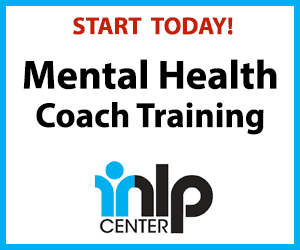(But you really need to know to build a successful coaching business.)
Starting your own coaching business can be one of the most exciting and scary times of your life. On the one hand, most new coaches are often ecstatic to have finally found their calling and the possibility of making a difference doing something they love. Yet on the other hand, so many new coaches are anxious, if not downright terrified, about their ability to build a successful business and support themselves through coaching.
If this is you, take heart; you are not alone. There are some 50,000 coaches who have felt the same way as they walked this path ahead of you. Almost every possible way of building a coaching practice has been tried and the potholes and dead ends on this journey are well-known. In an effort to share a bit of the collective wisdom of the many good souls that have come before you, here are five tips that might minimize your suffering and shorten your journey:
Pay Attention to the Business Side
Yes, you do have to learn to master the coaching skills. Fortunately, there are now dozens of wonderful fully ICF accredited coach training programs around the world that will help you do this. And even though the journey through your coach training can be lovely, meaningful, and even intoxicating at times, please do not make the mistake of putting all your time, effort and money into studying only the coaching skills. That is only half of what you need to know to make a good living as a coach. Please do not forget about learning some of the key business and marketing survival skills you will need to make and build a successful practice.
It is a sad fact that there are simply far too many well trained coaches out there struggling to fill their practices. It is not fun. In fact it can be heartbreaking to have finally found something you love to do but find yourself having to get unrelated work because you never learned how to successfully market yourself as a coach.
Every independent coach has to put the time into learning what they need to learn to become self-supporting. As to practical guidelines, I have noticed that even the busiest new coaches that can average at least two hours a week on the business side of their practice – learning skills, finding a niche, networking, giving talks, writing articles and newsletters, giving sample sessions, working social media, creating a website optimized to the keywords their ideal clients type into Google, etc., generally manage to get past the predictable obstacles and build a viable practice. Obviously, the more time you put into learning marketing best practices and actually performing productive marketing activities that fit your personality, the quicker your start-up will be.
Find a Niche
When I talk about having a niche for your coaching practice, I am simply talking about having a focus for your marketing. Having a niche is just about being really clear on who your ideal clients are, so you can know where they hang out, what they care about and how to best talk to them about the changes they want to make, in a language they understand.
Having a niche gets you away from the frustrating and fruitless exercise of trying to describe coaching to people who aren’t interested in it or can’t afford you.
As to the process of finding a niche, remember a good niche has two parts, a “who” and a “what.” The “who” is a specific group of people. The “what” is a logical cluster of challenges those people face and want to resolve.
There are dozens of proven niches in professional coaching, you do not have to reinvent the wheel or feel you have to come up with something no one else has thought of. I have yet to find a good niche where the market is saturated. If you are well-branded and positioned and give your ideal clients good reasons to work with you, you will be able to find enough clients. Look for groups of people you are called to work with, who have challenges they are spending money on now, who are relatively easy to market to (because they belong to the same groups, could be accessed through the same keyword phrases, read the same books, go to the same conferences, frequent the same social media groups, etc.).
When you identify a place you are interested in, go out and interview enough people to confirm what they are struggling with, what they are trying now that is not working, what their payoff is, what the best way to market to them is, that enough of them really are willing to spend money to get the results they want, etc. Once you do a few interviews, you will know enough about any group to know if they are a good fit for you. And if it is a great fit, you will know enough to do very effective marketing.
Focus on Problems and Solutions
One of the biggest mistakes new coaches make is trying to sell coaching. The problem with this is that many potential clients have never tried coaching and if they don’t know what it is, they cannot value the service, and few people purchase what they don’t understand. So rather than trying to sell such an intangible, difficult to describe thing called coaching, look for opportunities to market coaching as a great solution to the big challenges, problems or changes people are struggling with now.
Look for the changes they really care about, the ones they cannot seem to solve on their own. When you know what someone is trying to achieve, understand the payoff they will receive, help them recognize that they are not making the progress they want, it is far easier for them to see coaching as a valuable means of support . And wherever possible give them an experience of coaching, (rather than just a description of it) and make it really easy for them to start with you. (Because once they start coaching and feel the benefits, they will stay with you for a very long time.)
Offer more than one-to-one Coaching
While coaching can add great value and a high return on investment to many clients, the cost of one-to-one coaching remains out of reach for many. If you are well-marketed you will eventually be able to attract as many one-to-one clients as you want. However, you do yourself and the world a favor if you package yourself in other formats that lower the price of working together and dramatically increase the range of people who can work with you. For example, if you offer a small group coaching program you can materially increase the number of people who can afford to work with you.
This is good for you, as it helps you build revenues, and it is good for the world as it increases the number of people that benefit from your coaching. Also, this is actually quite easy to do when you have a niche where many of your clients have similar backgrounds and interests and want coaching on many of the same topics.
It’s a Mental Game
Having seen hundreds of new coaches come into this lovely young profession, I am convinced that the biggest challenge most of them face is mental. Seriously, I do not believe most coaches struggle because there is a lack of knowledge available about the business or marketing side of coaching. These days there are so many books, courses, talks, articles, recordings, videos, workshops, trainings, etc. where any reasonably motivated coach could learn all they need to learn to build a successful business.
The biggest roadblock to most coaches’ ultimate success is their inability to move past the ubiquitous distractions, doubts, limiting thoughts and conditioned behaviours that keep them thinking and feeling that they are not ready or worthy to succeed as a coach.
This of course is quite ironic, in that we coaches are so well trained in helping others past their inner critics. However, our knowledge on this topic simply does not make us immune to the very same challenges our clients face. If you are serious about succeeding as a coach, do not appease your doubt and fears and for heaven’s sake do not put your gremlin in charge of your marketing program.
In summary, the success, freedom and independence you seek in your coaching practice is always just beyond your current comfort zone. Get well trained, put the time into your business building, get the support you need, (if you cannot afford a coach fulltime, set up a coaching circle with some colleagues), manage your stress, (stress makes reactive, distracted, cowards out of us all), and get out there and share your gifts with the world. Good luck.
Disclaimer
The views and opinions expressed in guest posts featured on this blog are those of the author and do not necessarily reflect the opinions and views of the International Coach Federation (ICF). The publication of a guest post on the ICF Blog does not equate to an ICF endorsement or guarantee of the products or services provided by the author.
Additionally, for the purpose of full disclosure and as a disclaimer of liability, this content was possibly generated using the assistance of an AI program. Its contents, either in whole or in part, have been reviewed and revised by a human. Nevertheless, the reader/user is responsible for verifying the information presented and should not rely upon this article or post as providing any specific professional advice or counsel. Its contents are provided “as is,” and ICF makes no representations or warranties as to its accuracy or completeness and to the fullest extent permitted by applicable law specifically disclaims any and all liability for any damages or injuries resulting from use of or reliance thereupon.
Authors
Post Type
Blog
Audience Type
Coach Educators, Experienced Coaches, External Coaches, ICF Chapter Leaders, Internal Coaches, New Coaches, Professional Coaches, Team and Group Coaches
Topic
Coaching Essentials, Discover - Your Coaching Career
Related Posts
What an Equity Assessment Taught Us About Credentialing — and Why It Matters
At the heart of ICF’s credentialing philosophy is a simple but powerful…
DIVE IN Goals™: A Powerful Alternative to SMART Goal Setting
Unlike SMART goals, which emphasize structure and measurable success, DIVE IN Goals™…
What You Need to Know About the 2025 ICF Code of Ethics
An updated ICF Code of Ethics went into effect on April 1.…








